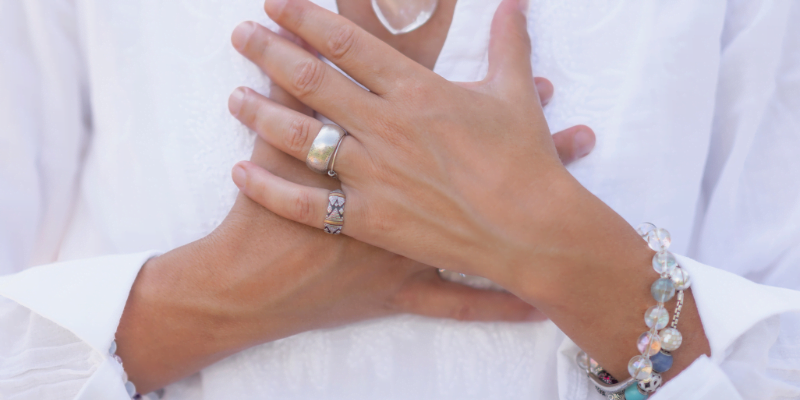Spirituality is a tricky topic to cover because it is little spoken about in general conversation. Often, I have found, topics centring on spirituality are spoken of in specific groups, e.g. Church groups, youth groups, faith-centred groups. I have been blessed enough to be surrounded by friends where we can discuss our individual faiths. All of my friends with whom I discuss spirituality have different ways of practicing and different beliefs to me. We have also found quite a lot of common ground amongst our spirituality, too. One thing that I have found to be quite a sticky point in my faith is the idea of self-love and self-sacrifice. This is something I am going to explore with you today.
Self-love is defined as regard for one’s own happiness and associated with self-esteem and self-worth. Self-love is also described as selfishness, greed, and conceit. Self-sacrifice is defined as forgoing dignity and one’s own identity for someone else. Self-sacrifice means you value something or somebody more than yourself and place their needs and wants above your own. This highlights qualities of altruism and selflessness. Neither of these concepts are ‘good’ or ‘bad’, it is how we perceive them and implement them in our own lives that gives them the quality of ‘goodness’ or ‘badness’.
Self-love often gets a bad reputation as selfishness. Why? Well, I believe it is because we live in an individualistic and capitalist society. Often, we see the extremes of this type of self-love expressing itself in the form of greed, selfishness, and pride. Having lived and witnessed the perils of this individualistic society, much value has been placed on teaching us the benefit of a collectivist society. Collectivist societies run by the basic premise of the greater good for all. This is not necessarily a bad concept, just like in individualistic societies valuing one’s uniqueness is not a bad concept. However, it is easy to see the ‘bad’ we have in our own society and the ‘good’ that other societies have. You know, the grass is always greener on the other side. In doing so, we don’t acknowledge the downside to collectivism, which is that the individual person is often lost in the system and their individual needs forsaken for the needs of the group. Of course, the opposite is true in individualistic societies like our own. The individuals’ needs and desires are prioritised and the needs of the group are forsaken creating larger gaps between people that continue to divide and separate us from one another.
I like to think of self-love and self-sacrifice as spectrums. On one side of the self-love spectrum, we have selfishness and on the other we have self-worth. On one side of the self-sacrifice spectrum, we have disempowerment and on the other we have altruism.
There is both good and bad in individualistic and collectivist societies. Just as there are both good and bad parts to self-love and self-sacrifice. Remember the spectrum? I believe that balance is key. Finding a good balance between sacrificing ourselves and loving ourselves. Finding the middle ground between putting our needs first and putting the needs of others first. Each situation is different and will call upon us to settle at a different place on each of the spectrums. I don’t think it is fair nor realistic to say you will stay stationary on one point of each spectrum always. Context is constantly changing and new information is always emerging that will influence where we need to place ourselves on each spectrum. For me, what has been helpful in making the best decision I can make with the knowledge and resources I have is becoming aware of the messages I am being told. My decision about where I will stand on the self-love and self-sacrifice spectrum on any given occasion is often influenced by a variety of factors: my society, the media, my family and culture, and my own beliefs, values, and morality. When I take some time to reflect and become aware of these influences and where they are leading me – for better or worse – I can make a more informed decision.
In my faith, placing others above yourself is highly valued. We refer to these acts as acts of almsgiving and charity. In carrying out almsgiving and charity from a genuine place of love for others, one often feels a sense of peace and grace, at least that has been my experience. I think that this is why it is so valued, because it enables us to feel such feelings that bring us closer to God. Something else that I have reflected on in my faith is how self-love is taught to us. I believe Jesus’ commandment “love your neighbour as you love yourself, as I have loved you” implies that we already have love for ourselves. We must have love for ourselves because Jesus lives in us, His spirit lives in us. In loving ourselves honestly and humbly we demonstrate our love for God. In loving others, we too, demonstrate our love for God. Love is the central tenet of the Gospel. Love for ourselves, others, and above all, God. If we act from a genuine place of love, whether that’s to ourselves or others, how can it be wrong? What does your spirituality teach you about self-love and self-sacrifice? What is your experience with these concepts? Where do you sit on the self-love and self-sacrifice spectrums? How do you know that? Would you like to move up or down a notch? What makes you think so? How can you do that?

